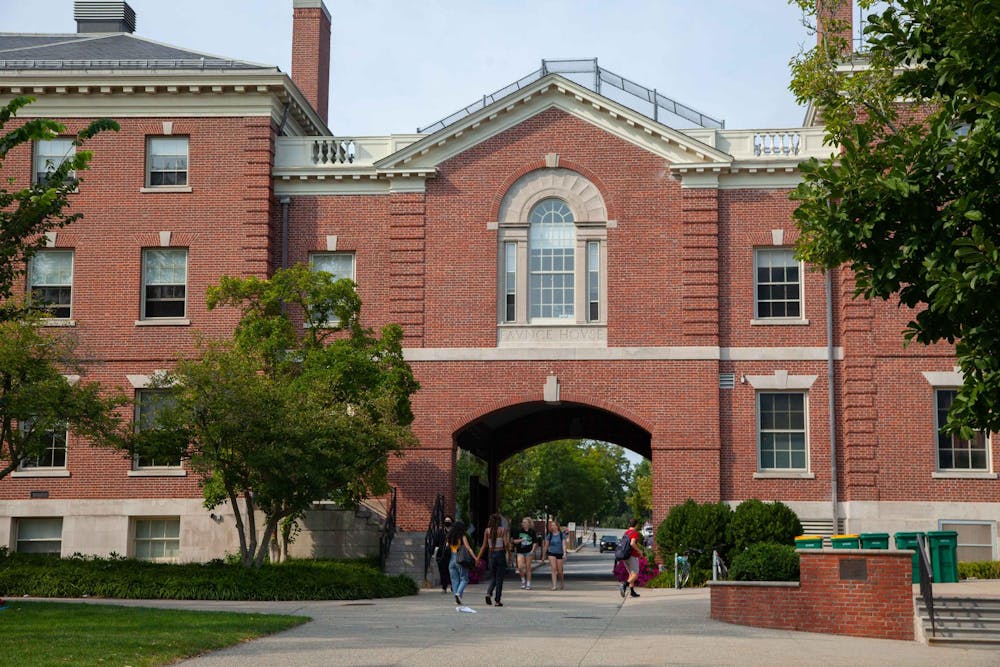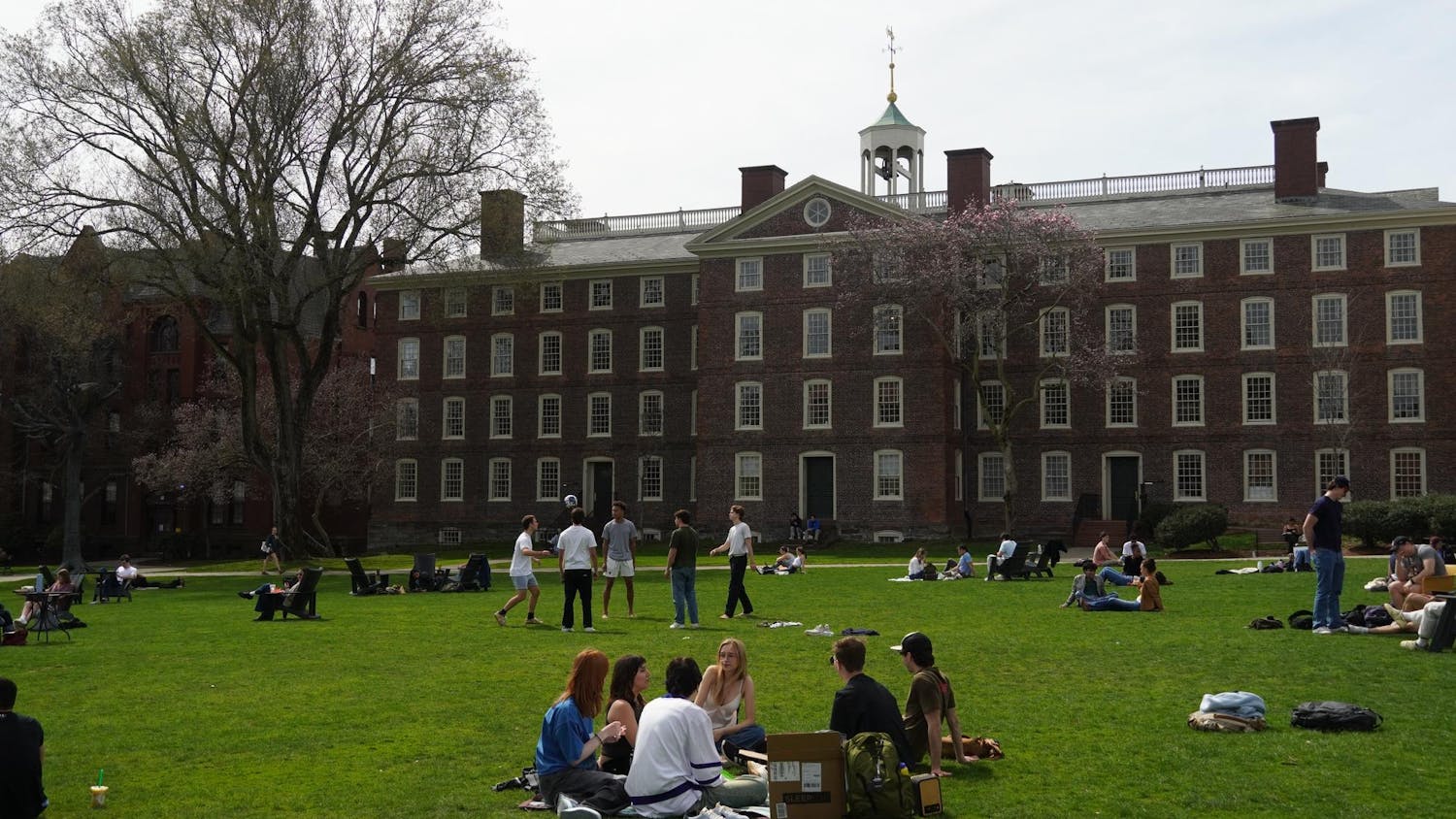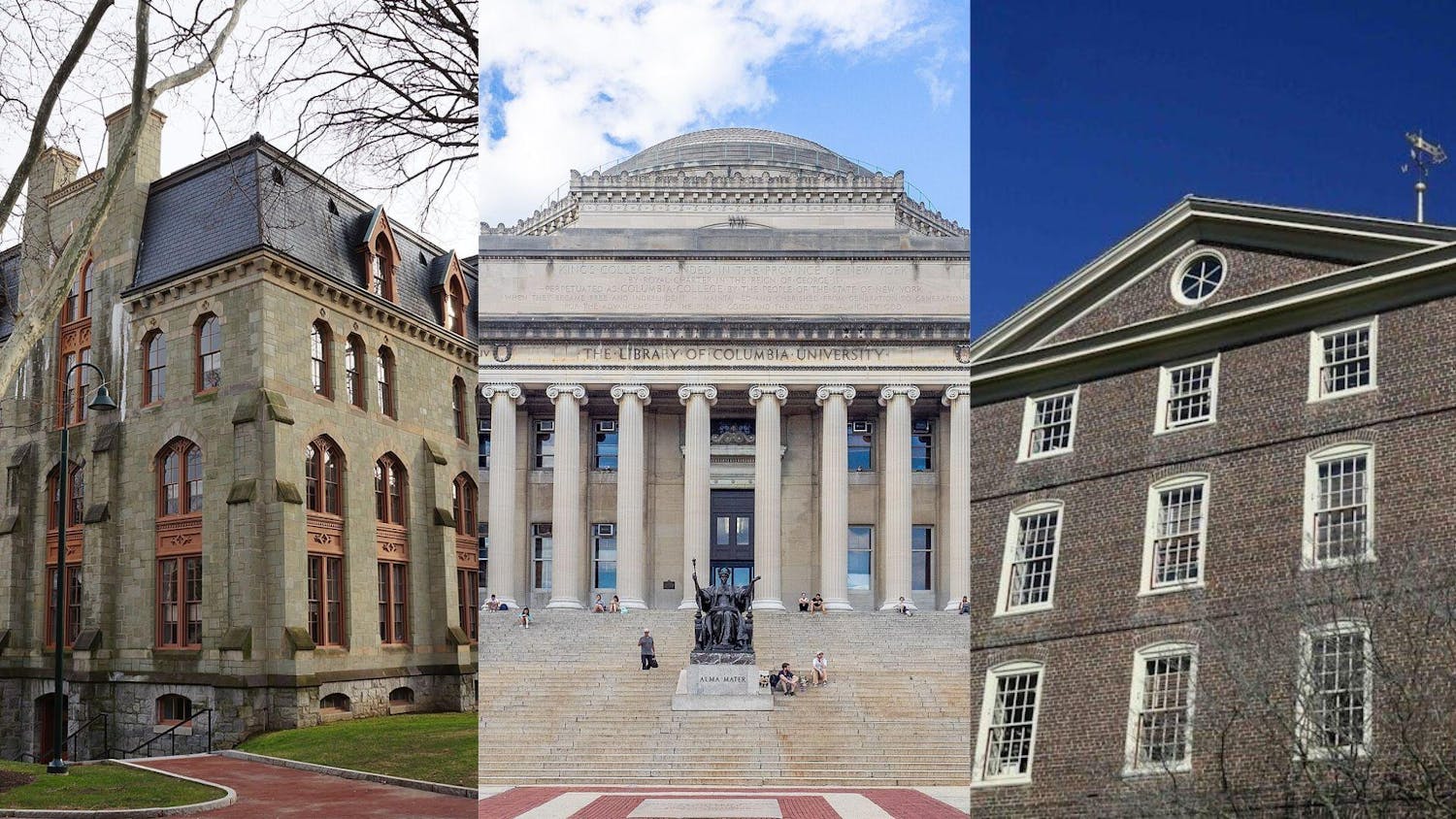Brown has been ranked the ninth-best college in the nation by the U.S. News and World Report 2024 Rankings, cracking the top ten colleges list for the first time in over two decades. Tied with Johns Hopkins University and Northwestern University, Brown climbed four spots from last year’s place at 13th, marking the highest position it has held since 1997, when it was ranked eighth.
Students expressed mixed feelings about the latest U.S. News rankings, particularly when considering their accuracy and utility as the rankings have increasingly come under fire.
U.S. News placed the University as the fifth-highest-ranked Ivy League college on the list behind Princeton, Harvard, Yale and Penn. Public universities rose to higher spots this year as private universities lost ground: the University of California at Los Angeles and the University of California at Berkeley are now tied for 15th place. Last year, they were tied for 20th.
Other lists published by the U.S. News labeled Brown the third-best school for undergraduate teaching and number one for “writing in the disciplines,” which the University highlighted in a recent press release.
This year, U.S. News changed its methodology dramatically. The publication stopped considering class size, average alumni giving and high school class standing — factors that may have offered a greater positive effect for private institutions. Instead, the ranking added first-generation graduation rate and data regarding publication citations as considerations, while placing more emphasis on other factors such as student-faculty ratio and borrower debt.
Many law and medical schools have refused to send their data to U.S. News, including Warren Alpert Medical School, The Herald previously reported.
Dean of Medicine and Biological Sciences Mukesh Jain wrote in a letter to the Brown community that it will not send information to “rankings that do not align with our measures of what constitutes quality preparation for medical students,” which includes U.S. News.
But many institutions, including Brown, still send data regarding their undergraduate programs.
University Spokesperson Brian Clark wrote in an email to The Herald that the withdrawal by the Medical School “did not impact Brown participation” in undergraduate rankings.
This year, Columbia and the Rhode Island School of Design chose not to send undergraduate data to U.S. News. In 2022, a report from Columbia Professor of Mathematics Michael Thaddeus questioned the validity of Columbia’s data, claiming the university misrepresented its data. The following year, Columbia’s rank dropped from second to 18th.
Some publications beyond U.S. News use different criteria, which placed Brown significantly further down the list.
“This year, many of the rankings organizations made significant changes in methodology, prompting gains in some rankings and declines in others,” Clark wrote. “The ever-changing methods and approaches underscore the challenges of formulaic rankings. Brown continues to maintain that no ranking is effective in determining what school is a good match for a prospective student.”
With a greater emphasis than U.S. News on salary, net attendance price and graduation rates, the Wall Street Journal ranked Brown as 67th, below the rest of the Ivy League colleges — after it ranked Brown sixth in 2022.
This year, WSJ rankings increasingly factored in salaries after graduation — which Clark said may have come from a mix of “absolute and relative” measures of student outcomes that rank the University poorly when “considering these data relative to what would have been predicted given student characteristics like standardized test scores and demographic profiles.”
A higher net cost in the 2020-21 academic year also contributed to the drop, which Clark said may have been impacted by a high portion of students coming to College Hill in the 2020-21 school year compared to other colleges — meaning the University continued to charge room and board.
Brown also placed low in an analysis of economic diversity performed by the New York Times. Using Pell Grant recipients as an indicator, the University ranked 230th of 283 colleges for economic diversity, with only 14% of University students receiving Pell Grants in the 2020-21 academic year — the lowest of the Ivy League.
Pell Grants are “one indicator of progress,” Clark wrote. He also pointed to “application fee waivers,” “partnerships with community organizations that support low-income students” and “travel funding for all admitted students from low-income backgrounds who wish to visit campus” as measures taken to enhance recruitment of low-income students.
“Our commitment to making Brown accessible to a wide range of students, including and especially those from low-income backgrounds, is unwavering,” he added.
When some students were asked directly about the new rankings, many declined to comment, citing their lack of interest in ratings.
“I honestly don’t really care,” said Claire Fan ’25. “I don't think the rankings mean that much.”
“We all get a little bit of an ego boost,” Hayden Deffarges ’25 said. But they followed by saying the U.S. News rankings are “not really useful.”
They added that the rankings “take into account many things that are not related to student quality of life or student learning.”
But when the rankings were released late Sunday night, a deluge of posts on Sidechat — a widely-used anonymous social media platform on campus — celebrated the University’s place in the top 10.
One post read, “rankings are superficial and mean nothing” before adding, “I go to a top 10 school (by the way).”

Owen Dahlkamp is the managing editor of newsroom on The Herald's 135th Editorial Board, overseeing the paper's news operations. Hailing from San Diego, CA, he is concentrating in Political Science and Cognitive Neuroscience with an interest in data analytics. In his free time, you can find him making spreadsheets at Coffee Exchange.

Ryan Doherty is the managing editor of digital content and vice president of The Herald's 135th editorial board. He is a junior from Carmel, NY who is concentrating in chemistry and economics. He previously served as a university news and science & research editor, covering faculty and higher education.





